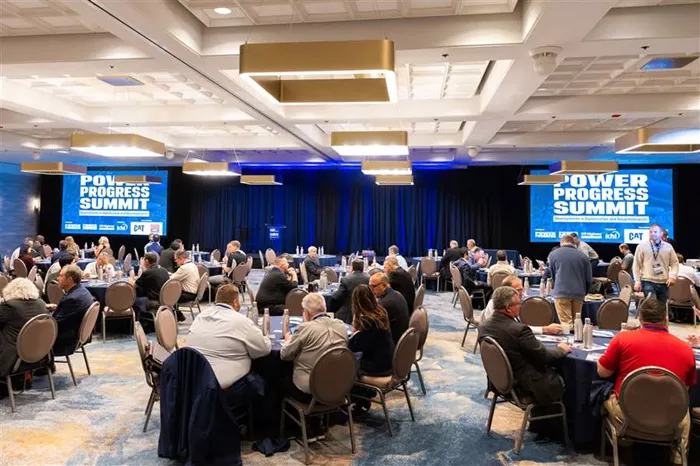The 2024 Power Progress Summit, held in Chicago on October 1-2, focused on the crucial themes of digitalization and decarbonization in the power industry. As industry leaders gathered to share their insights, several key topics emerged regarding the future of energy solutions.
Emphasizing Flexibility in Power Solutions
Flexibility in power solutions was a recurring theme throughout the summit. Kelvin Bennett, senior vice president of engineering for AGCO, highlighted the necessity for diverse power sources to meet evolving customer needs during the energy transition. He emphasized AGCO’s commitment to providing a “wider spectrum of power,” which includes renewable fuels, hybrid technology, battery electric (BE) power, and hydrogen fuel cells.
Bennett articulated the challenge of evolving from traditional diesel engines, saying, “We just said, ’80 years of great diesel engines.’ Well, what’s the next 80 years? I think there are still internal combustion engines for most, if not all, of that for sure. But you have to go wider.”
In a keynote address, Brad Sutton, executive director of powertrain engineering for Cummins, discussed the role of data and AI in optimizing power systems. He noted that understanding fleet needs through these technologies allows manufacturers to provide tailored power solutions across various fuel types.
Sutton stated, “With these tools, can we optimize their fleet in terms of power, whether it’s diesel, gasoline, hydrogen, natural gas, renewable natural gas and even whether it’s new power?” He also confirmed Cummins’ commitment to investing in multiple decarbonization technologies rather than waiting for a singular solution to dominate.
During the second day of the summit, Alex Woodrow, managing director of Knibb Gormezano Partners, emphasized the necessity for diverse fuel sources in the decarbonization effort. He pointed out the global demand for off-highway power solutions, stating, “In total, we’ve got around five million units in the segments that we’re looking at. All of these… have to be decarbonized or go to different solutions at some time.”
Optimizing Total Cost of Ownership (TCO)
Another significant takeaway from the summit was the critical importance of optimizing the total cost of ownership (TCO) as new technologies emerge. Alexandre Esgolmin from ZF Group stressed that achieving a decarbonized future must also be affordable and sustainable for the industry.
Sutton echoed this sentiment, expressing concern about the rising costs associated with new technology, stating, “A big worry from our industry is, as this new technology comes, it becomes very expensive. How are we all going to be able to afford this?”
Tara Stryker from RB Global highlighted the rapid increase in equipment costs, noting that new equipment prices have surged more than 30% over the last four years, significantly outpacing inflation.
The Need for Industry Collaboration
Summit speakers unanimously agreed that collaboration across the industry is essential for tackling the challenges of decarbonization. Sutton pointed out that advancements in AI and power systems cannot be achieved in isolation, advocating for greater industry cooperation.
“Using AI to help us get there faster is right here, right now, but we have to break down those walls in the industry and start to collaborate, share information, share best practices, share what doesn’t work, share what does work,” Sutton said.
Oliver Lythgoe, chief marketing officer for The Fetis Group, underscored the necessity for collaboration in software innovation, noting that modern automotive OEMs rely on cooperative efforts to develop the extensive coding required for advanced vehicle technology.
Alan Berger from ABCG praised the vital role of equipment dealers in the industry, emphasizing the need for engagement and collaboration to ensure that they can effectively support new technologies and practices.
As the 2024 Power Progress Summit concluded, it was clear that the path to decarbonization will depend heavily on flexibility in power solutions, optimizing ownership costs, and fostering a spirit of collaboration across the industry.
Related topics:
- John Deere Expands Training Facility to Enhance Dealer Support
- Damen to Equip Hegemann’s Booster Station with Emissions Reduction System
- Webtec Launches HPM5000: A Mid-Size Hydraulic Data Logger for Advanced Machinery Diagnostics

